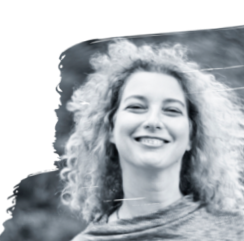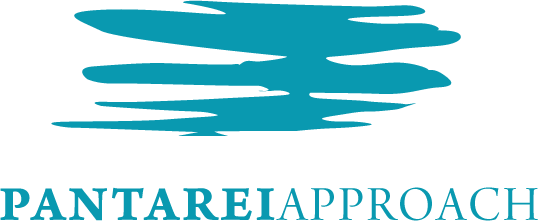
Turning discontent into drive: navigating life’s crossroads
It’s a human tendency to fixate on what we are against, whether in our personal lives, society at large, or the world. Have you noticed how easy it can be to slip into a cycle of discontent, to constantly react to what you dislike rather than actively pursue what you truly desire? When facing a problem, even the most positive person can find themselves struggling to connect to the bigger picture and to their drive that lies beyond solving the issue at hand.
 Exploring motivation
Exploring motivation
In a recent conversation with a friend, we discussed people’s motivations to create change. I shared stories from the people I know, Pantarei clients, and myself. My friend mainly related to big political movements and from where the motivation for these movements started.
When I give Pantarei Approach sessions, people come to me with what they want to change in their lives. Often, they talk about what doesn’t work for them, be it physical limitations, relationships that are not to their liking, arguments with friends, or their frustrations concerning their job. I’ve even had clients who feel happy about their lives starting the session apologizing to me that they don’t have a “real problem” to work on.
What interests me as a practitioner is to see how, even when someone focuses on what is wrong, there is always a hidden wish, wanting, and desire. Just as in the article I wrote about the dance between the dark and the lightness, I believe that when we follow the shadow, we can find the light that creates that shadow. When we only focus on what’s wrong, we disconnect from an incredible access point to some of our most powerful resources.
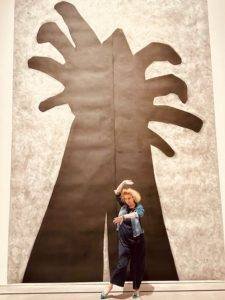 A reflective exercise:
A reflective exercise:
Consider pivotal decisions in your own life. What was the driving force behind them? Was it a passionate dream pulling you forward or a pressing need to escape something you couldn’t tolerate any longer?
Life’s crossroads
When I observed critical crossroads in my life that led me in a new direction, some resulted from a huge wanting and some from an insistent irritation. I immigrated to Italy and later, Berlin to pursue new opportunities and not to escape something I no longer wanted. However, we all know plenty of people who started a new life in a new country as they felt the need to leave something ‘bad’ behind.
The most interesting crossroads I ever experienced was, undoubtedly, in 2016 when Claudia and I established the Pantarei Approach. The process started a few years earlier and began with a sense of frustration, irritation, and a need for change. If you had met me 15 years ago, I would have never imagined creating my own approach. I would have never taken that step if everything had been comfortable and easy.
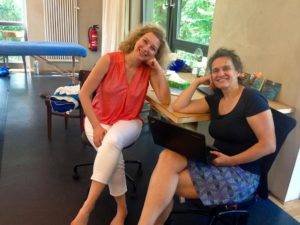 Two pulls that move us forward
Two pulls that move us forward
The dissatisfaction in the organization I was a part of grew. And I started to reflect upon events and situations from a very different and more critical point of view. I began to dig deeper and ask new questions. Yet I didn’t receive answers that satisfied me. I reflected and asked other people about their experiences.
The first step was understanding that I could no longer stand behind what I was teaching. This was long before I knew Claudia and I were about to co-found The Pantarei Approach. All I had at that time was dissatisfaction and a vague sense of what I wanted and who I wanted to be.
Parallel to the movements that pushed me to leave, came more profound questions about what I wanted next. What was I struggling for? What would fill my heart with meaning? What values did I want to invite into my life, and what did I truly want to give to others?
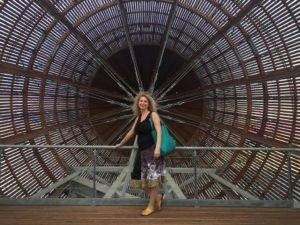 Practical implementation
Practical implementation
Think about something, anything, you don’t like in your life; something you might challenge or even change if you had the energy and resources.
How does what you dislike reveal to you what you want and who you are? It is easy to reject ourselves or see any negativity as a failure. But the reality is that there is a lot of information about who we are and what we want inside our anger, dissatisfaction, and discomfort. What does this thing that you want to reject, challenge, or fix reveal about you as a unique human being? How does what you are angry or upset about show you what you truly desire for yourself and the world? Considering all of this, can you tap into your passion and use it to move you toward what you want and who you want to be? Even if there is nothing to change or do, can this clarity about yourself allow you to soften and move with this powerful energy of desire and vision?
 Connection
Connection
In March 2024, the Pantarei Approach will open its 18th class of the Practitioner Training Program. I know that the Pantarei Approach school is part of a strong wish I had: a wish to connect people to themselves and each other, a wish to create a profession where everything I have learned in the last 30 years of being a somatic practitioner and teacher can be expressed; a school where people learn to support others while exploring and developing themselves.
For me, the question of my motivation to co-establish the Pantarei Approach with Claudia is crucial. Understanding my ‘why’ drives me to continue developing the Pantarei Approach school. It motivates me to keep writing my book, and teaching practitioners. This motivation is not about what I left behind or about what I resisted but what I want to invite into my life and the lives of others.
My personal motivation is to create a space where I can practice and teach others to be more connected. I want people to enjoy discovering the path where we connect to our hearts and what we do; connect to who we are, and how we can give to others and ourselves. A space where people can connect to the magic and the way it moves us in life, listen to the wisdom that is ancient and mysterious, and also practical, physical, and real. A place where we can find the peacefulness to accept everything that has already happened and to look at it with open eyes, integrity, and accountability.
And you?
What motivates you in your path? What are the things you wish to create in your life and why?
Written by Vered Manasse
